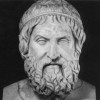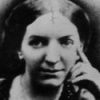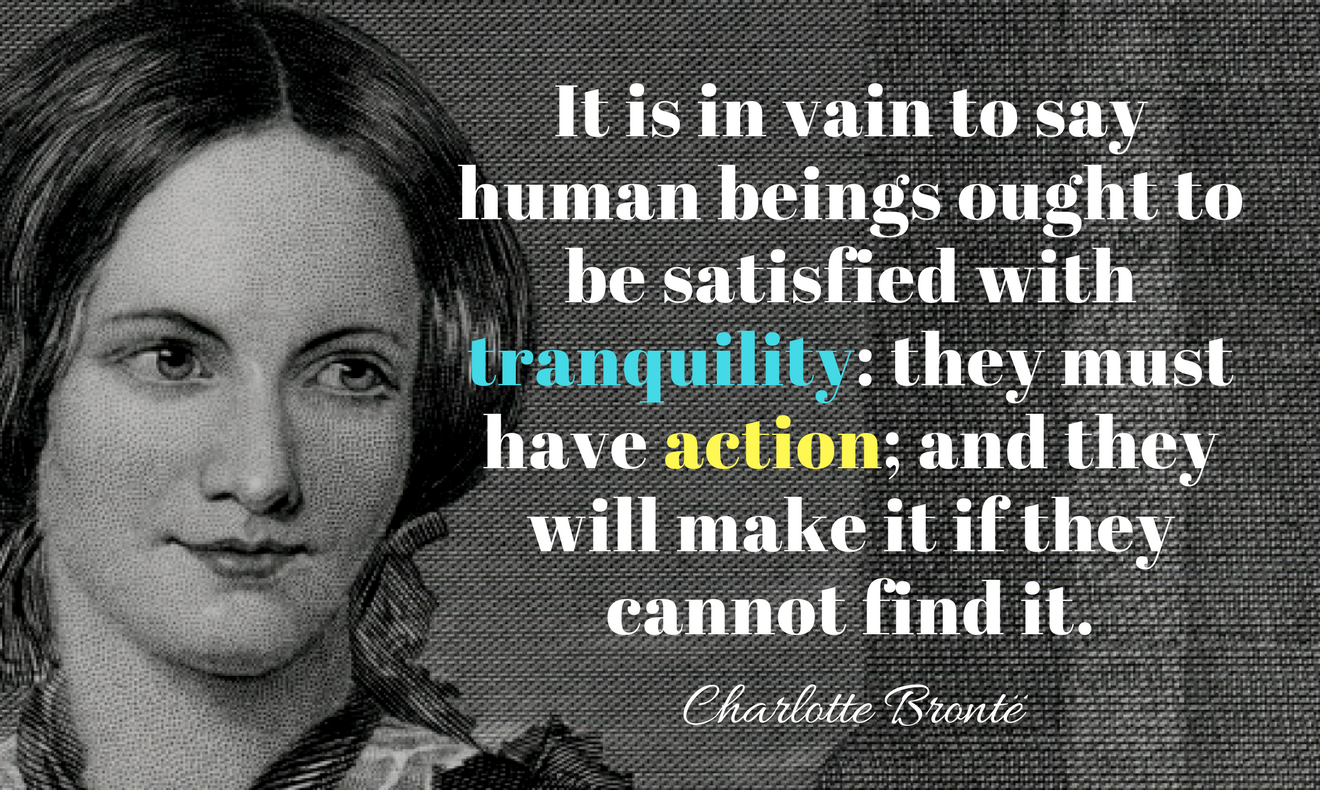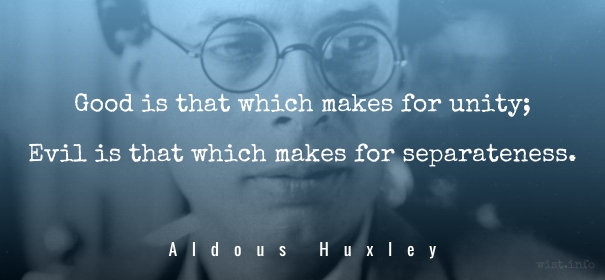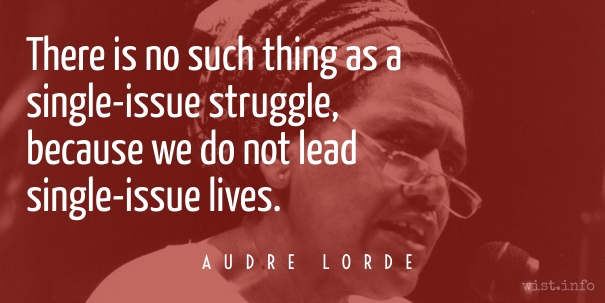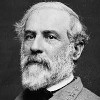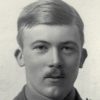When a twelfth-century youth fell in love he did not take three paces backward, gaze into her eyes, and tell her she was too beautiful to live. He said he would step outside and see about it. And if, when he got out, he met a man and broke his head — the other man’s head, I mean — then that proved that his — the first fellow’s — girl was a pretty girl. But if the other fellow broke his head — not his own, you know, but the other fellow’s — the other fellow to the second fellow, that is, because of course the other fellow would only be the other fellow to him, not the first fellow who — well, if he broke his head, then his girl — not the other fellow’s, but the fellow who was the — Look here, if A broke B’s head, then A’s girl was a pretty girl; but if B broke A’s head, then A’s girl wasn’t a pretty girl, but B’s girl was. That was their method of conducting art criticism.
Jerome K. Jerome (1859-1927) English writer, humorist [Jerome Klapka Jerome]
Idle Thoughts of an Idle Fellow, “On Being Idle” (1886)
(Source)
Quotations about:
conflict
Note not all quotations have been tagged, so Search may find additional quotes on this topic.
A bitter-tongued parent cannot teach respect for facts. Truth for its own sake can be a deadly weapon in family relations. Truth without compassion can destroy love. Some parents try too hard to prove exactly how, where and why they have been right. This approach will bring bitterness and disappointment. When attitudes are hostile, facts are unconvincing.
Haim Ginott (1922-1973) Israeli-American school teacher, child psychologist, psychotherapist [b. Haim Ginzburg]
Between Parent and Teenager, ch. 2 “Rebellion and Response” (1969)
(Source)
Sometimes mis-cited to the earlier Between Parent and Child (1965).
No man lives without jostling and being jostled; in all ways he has to elbow himself through the world, giving and receiving offense.
Thomas Carlyle (1795-1881) Scottish essayist and historian
“Sir Walter Scott,” London and Westminster Review No. 12 and 55, Art. 2 (1838-01)
(Source)
A review of Scott's Memoirs of the Life of Sir Walter Scott, Baronet, Vols. 1-6 (1837). Reprinted in Carlyle, Critical and Miscellaneous Essays (1827-1855).
COMPROMISE, n. Such an adjustment of conflicting interests as gives each adversary the satisfaction of thinking he has got what he ought not to have, and is deprived of nothing except what was justly his due.
Ambrose Bierce (1842-1914?) American writer and journalist
“Compromise,” The Cynic’s Word Book (1906)
(Source)
Included in The Devil's Dictionary (1911). Originally published in the "Devil's Dictionary" column in the San Francisco Wasp (1881-08-12).
I have often wondered, that persons who make a boast of professing the Christian religion, namely, love, joy, peace, temperance, and charity to all men, should quarrel with such rancorous animosity, and display daily towards one another such bitter hatred, that this, rather than the virtues they claim, is the readiest criterion of their faith.
Baruch Spinoza (1632-1677) Dutch philosopher
Theological-Political Treatise [Tractatus Theologico-Politicus], Part 1, Preface, sec. 23 (1670)
(Source)
There are some who turn everything into warfare, who behave like social bandits and would like to conquer others in everything they do. They have no idea how to live peaceably.
[Hay algunos que todo lo reducen a guerrilla; bandoleros del trato, cuanto ejecutan querrían que fuese vencimiento, no saben proceder pacíficamente.]
Baltasar Gracián y Morales (1601-1658) Spanish Jesuit priest, writer, philosopher
The Art of Worldly Wisdom [Oráculo Manual y Arte de Prudencia], § 218 (1647) [tr. Maurer (1992)]
(Source)
(Source (Spanish)). Alternate translations:
There are some who turn every thing into a kind of skirmishing. They are Ruffians in Conversation; and would make a triumph of every thing they doe. They know not what it is to be peacefull.
[Flesher ed. (1685)]
There are persons who make a war out of everything, real banditti of intercourse. All that they undertake must end in victory; they do not know how to get on in peace.
[tr. Jacobs (1892)]
There are those who reduce everything to war, veritable highwaymen of friendly intercourse; they seek that all they push through be made a victory; and they know not peaceful pursuit.
[tr. Fischer (1937)]
ENOBARBUS: When valor preys on reason,
It eats the sword it fights with.William Shakespeare (1564-1616) English dramatist and poet
Antony and Cleopatra, Act 3, sc. 13, ll. 240ff (3.13.240-241) (1607)
(Source)
There is always something pleasurable in the struggle and the victory. And if a man has no opportunity to excite himself, he will do what he can to create one, and according to his individual bent, he will hunt or play Cup and Ball: or led on by this unsuspected element in his nature, he will pick a quarrel with someone, or hatch a plot or intrigue, or take to swindling and rascally courses generally — all to put an end to a state of repose which is intolerable.
[Der Kampf mit ihnen und der Sieg beglückt. Fehlt ihm die Gelegenheit dazu, so macht er sie sich, wie er kann: je nachdem seine Individualität es mit sich bringt, wird er jagen, oder Bilboquet spielen, oder, vom unbewußten Zuge seiner Natur geleitet, Händel suchen, oder Intriguen anspinnen, oder sich auf Betrügereien und allerlei Schlechtigkeiten einlassen, um nur dem ihm unerträglichen Zustande der Ruhe ein Ende zu machen.]
Arthur Schopenhauer (1788-1860) German philosopher
Parerga and Paralipomena, Vol. 1, “Aphorisms on the Wisdom of Life [Aphorismen zur Lebensweisheit],” ch. 5 “Counsels and Maxims [Paränesen und Maximen],” § 2.17 (1851) [tr. Saunders (1890)]
(Source)
(Source (German)). Alternate translation:
The struggle with [obstacles] and the triumph make him happy. If he lacks the opportunity for this, he creates it as best he can; according to the nature of his individuality, he will hunt or play cup and ball; or, guided by the unconscious urge of his nature, he will pick a quarrel, hatch a plot, or be involved in fraud and all kinds of wickedness, merely in order to put an end to an intolerable state of repose.
[tr. Payne (1974)]
‘Those were happier days, when there was still close friendship at times between folk of different races, even between Dwarves and Elves.’
‘It was not the fault of the Dwarves that the friendship waned,’ said Gimli.
‘I have not heard that it was the fault of the Elves,’ said Legolas.
‘I have heard both,’ said Gandalf; ‘and I will not give judgement now.’
J.R.R. Tolkien (1892-1973) English writer, fabulist, philologist, academic [John Ronald Reuel Tolkien]
The Lord of the Rings, Vol. 1: The Fellowship of the Ring, Book 2, ch. 4 “A Journey in the Dark” (1954)
(Source)
The other part of it is [the belief that] if we just totally opened our souls to one another, we would love one another and get along. This trivializes the fact that people have deep and legitimately-held differences. People think, mistakenly, that etiquette means you have to suppress your differences. On the contrary, etiquette is what enables you to deal with them; it gives you a set of rules. On the floor of the Congress, you don’t say, “You’re a jerk and a crook”; you say, “I’m afraid the distinguished gentleman is mistaken about so and so.” Those are the things that enable you to settle your differences, to bring them out in the open. Everything else just starts battles.
Judith Martin (b. 1938) American author, journalist, etiquette expert [a.k.a. Miss Manners]
In “Polite Company,” interview by Hara Estroff Marano, Psychology Today (1998-03)
(Source)
The wound hurts less than your desire to wound me.
James Richardson (b. 1950) American poet
“Vectors: 56 Aphorisms and Ten-second Essays,” Michigan Quarterly Review, # 18 (Spring 1999)
(Source)
I don’t have much truck with the “religion is the cause of most of our wars” school of thought because that is manifestly done by mad, manipulative and power-hungry men who cloak their ambition in God.
Terry Pratchett (1948-2015) English author
“I create gods all the time — now I think one might exist,” Daily Mail (21 Jun 2008)
(Source)
WATCHMAN:
Sir, I am here. I can’t say I am out of breath.
I have not exactly been “running on light feet.”
I halted many times along the road so I could think,
And I almost turned around and marched right back.
My mind kept talking to me. It said, “You poor guy,
Why are you going there? You’ll just get your ass kicked.”
Then it said, “Are you stopping again, you damn fool?
If Creon hears this from another man, he’ll give you hell.”
Well, I turned this idea up and down like that,
And I hurried along, real slow. Made a short trip long.[Φύλαξ:
ἄναξ, ἐρῶ μὲν οὐχ ὅπως τάχους ὕπο
δύσπνους ἱκάνω κοῦφον ἐξάρας πόδα.
πολλὰς γὰρ ἔσχον φροντίδων ἐπιστάσεις,
ὁδοῖς κυκλῶν ἐμαυτὸν εἰς ἀναστροφήν:
ψυχὴ γὰρ ηὔδα πολλά μοι μυθουμένη:
τάλας, τί χωρεῖς οἷ μολὼν δώσεις δίκην;
τλήμων, μενεῖς αὖ; κεἰ τάδ᾽ εἴσεται Κρέων
ἄλλου παρ᾽ ἀνδρός; πῶς σὺ δῆτ᾽ οὐκ ἀλγύνει;
τοιαῦθ᾽ ἑλίσσων ἤνυτον σχολῇ βραδύς.]Sophocles (496-406 BC) Greek tragic playwright
Antigone, l. 223ff (441 BC) [tr. Woodruff (2001)]
(Source)
Original Greek. Alternate translations:
SENTINEL:
My liege, I cannot say that from very haste I come panting for breath, having stept out with nimble paces. Troth: I have had many half-way houses of cogitation, wheeling about after every fresh start as though I would return. In fact, my soul often addressed me with some such tale as this: Why goest, simpleton, where to be come is to be punished?" then again: "What! wilt not away, poor wretch? and if Kreon shall learn these tidings from some one else, how then wilt thou escape the penalty?" While thus my mind revolved, the speed I made was tardy in its swiftness: and so a short road is made long.
[tr. Donaldson (1848)]
GUARD:
My lord, I will not make pretense to pant
And puff as some light-footed messenger.
In sooth my soul beneath its pack of thought
Made many a halt and turned and turned again;
For conscience plied her spur and curb by turns.
"Why hurry headlong to thy fate, poor fool?"
She whispered. Then again, "If Creon learn
This from another, thou wilt rue it worse."
Thus leisurely I hastened on my road;
Much thought extends a furlong to a league.
[tr. Storr (1859)]
WATCHMAN:
My lord, I am out of breath, but not with speed.
I will not say my foot was fleet. My thoughts
Cried halt unto me ever as I came
And wheeled me to return. My mind discoursed
Most volubly within my breast, and said--
Fond wretch! why go where thou wilt find thy bane?
Unhappy wight! say, wilt thou bide aloof?
Then if the king shall hear this from another,
How shalt thou 'scape for 't? Winding thus about
I hasted, but I could not speed, and so
Made a long journey of a little way.
[tr. Campbell (1873)]
GUARD:
My king, I will not say that I arrive breathless because of speed, or from the action of a swift foot. For often I brought myself to a stop because of my thoughts, and wheeled round in my path to return. My mind was telling me many things: “Fool, why do you go to where your arrival will mean your punishment?” “Idiot, are you dallying again? If Creon learns it from another, must you not suffer for it?” So debating, I made my way unhurriedly, slow, and thus a short road was made long.
[tr. Jebb (1891)]
MESSENGER:
O King, I cannot boast that, hither sent,
I came with speed, for oft my troubled thoughts
Have driven me back; oft to myself I said,
Why dost thou seek destruction?
With doubts like these oppressed, slowly I came,
And the short way seemed like a tedious journey.
[tr. Werner (1892)]
GUARD:
My liege, I will not say that I come breathless from speed, or that I have plied a nimble foot; for often did my thoughts make me pause, and wheel round in my path, to return. My mind was holding large discourse with me; "Fool, why goest thou to thy certain doom?" "Wretch, tarrying again? And if Creon hears this from another, must not thou smart for it?" So debating, I went on my way with lagging steps, and thus a short road was made long.
[tr. Jebb (1917)]
SENTRY:
I'll not say that I'm out of breath from running, King, because every time I stopped to think about what I have to tell you, I felt like going back. And all the time a voice kept saying, "You fool, don't you know you're walking straight into trouble?"; and then another voice: "Yes, but if you let somebody else get the news to Creon first, it will be even worse than that for you!"
[tr. Fitts/Fitzgerald (1939)]
SENTRY:
My lord: if I am out of breath, it is not from haste.
I have not been running. On the contrary, many a time
I stopped to think and loitered on the way,
Saying to myself “Why hurry to your doom,
Poor fool?” and then I said, “Hurry, you fool.
If Creon hears this from another man,
Your head’s as good as off.” So here I am,
As quick as my unwilling haste could bring me;
In no great hurry, in fact.
[tr. Watling (1947), l. 183ff]
GUARD:
Lord, I can't claim that I am out of breath
from rushing here with light and hasty step,
for I had many haltings in my thought
making me double back upon my road.
My mind kept saying many things to me:
"Why go where you will surely pay the price?"
"Fool, are you halting? And if Creon learns
from someone else, how shall you not be hurt?"
Turning this over, on I dilly-dallied.
And so a short trip turns itself to long.
[tr. Wyckoff (1954)]
GUARD:
My lord: I cannot say that I am come
All out of breath with running. More than once
I stopped and thought and turned round in my path
And started to go back. My mind had much
To say to me. One time it said "You fool!
Why do you go to certain punishment?"
Another time "What? Standing still, you wretch?
You'll smart for it, if Creon comes to hear
From someone else." And so I went along
Debating with myself, not swift nor sure.
This way, a short road soon becomes a long one.
[tr. Kitto (1962)]
SENTRY:
My lord,
I can't say I'm winded from running, or set out
with any spring in my legs either -- no sir,
I was lost in thought, and it made me stop, often,
dead in my tracks, wheeling, turning back,
and all the time a voice inside me muttering,
"Idiot, why? You're going straight to your death."
Then muttering, "Stopped again, poor fool?
If somebody gets the news to Creon first,
what's to save your neck?" And so,
mulling it over, on I trudged, dragging my feet,
you can make a short road take forever ...
[tr. Fagles (1982), l. 248ff]
WATCHMAN:
Lord, I cannot say that I arrive breathless
from quickly lifting nimble feet.
In fact, I stopped many times to think,
whirling around on the roads to turn back.
My spirit kept talking to me and saying:
“Poor fool, why are you going to a place where
you will pay the penalty when you arrive? Wretch, are you
dawdling along again? If Creon learns about this
from someone else, how then will you not feel pain?”
As I rolled around such thoughts, I was gradually and
slowly completing the journey, and so a short road
became a long one.
[tr. Tyrell/Bennett (2002)]
GUARD: My King, I can’t really say that I’ve lost my breath by running my feet to the ground so as to get here as quickly as I could! No, I tarried. God knows I’ve stopped myself often enough, on the way here and I’ve almost turned back many times.
My soul, you see, was talking to me all the while and all the while it kept changing its mind: “poor man,” it would say one minute, “Why are you rushing to your suffering?” Or again, “Stupid man,” it would say, “why are you hanging about like this? What if the king hears it from someone else? What a mess you’d get yourself into then!”
Stuff like that was spinning about in my head and it made this small road so much longer!
[tr. Theodoridis (2004)]
GUARD:
My lord, I can’t say I’ve come out of breath
by running here, making my feet move fast.
Many times I stopped to think things over --
and then I’d turn around, retrace my steps.
My mind was saying many things to me,
“You fool, why go to where you know for sure
your punishment awaits?” -- “And now, poor man,
why are you hesitating yet again?
If Creon finds this out from someone else,
how will you escape being hurt?” Such matters
kept my mind preoccupied. And so I went,
slowly and reluctantly, and thus made
a short road turn into a lengthy one.
[tr. Johnston (2005), l. 256ff]
GUARD:
My lord, I will not say that I come breathless
from rushing or quickly moving my feet,
for often my thoughts stopped me in my place,
and I'd wheel around on the road back where I came.
My heart kept talking to me, telling me,
"Poor fool, why are you going where you're sure
to be punished?" "Idiot, you stopping
again? If Creon hears it from someone else,
then you'll really pay for it!" Twisting like this
I made my way, the opposite of hate,
and thus a short road became a long one.
[tr. Thomas (2005), l. 226ff]
Truth is the first casualty in war.
Aeschylus (525-456 BC) Greek dramatist (Æschylus)
(Misattributed)
Variant: "Truth is the first casualty of war."
Not found, as such, in Aeschylus' works. The closest (Fragm. Incert, xi.) is his phrase "God is not averse to deceit in a just cause." Attribution to of the subject phrase to Aeschylus dates only back to 1965. The first recorded use of the phrase as such is from 1915, but even there it is offered as a quotation from an unnamed source.
More discussion of the history of this phrase can be found here and here.
Inferiors revolt in order that they may be equal, and equals that they may be superior.
Aristotle (384-322 BC) Greek philosopher
Politics [Πολιτικά], Book 5, ch. 2 / 1302a.29 [tr. Jowett (1885)]
(Source)
Alternate translations:
- "Now, what they aim at may be either just or unjust; just, when those who are inferior are seditious, that they may be equal; unjust, when those who are equal are so, that they may be superior." [tr. Ellis (1912)]
- "When inferior, people enter on strife in order that they may be equal, and when equal, in order that they may be greater." [tr. Rackham (1932)]
- "The lesser engage in factional conflict in order to be equal; those who are equal, in order to be greater." [tr. Lord (1984)]
Hector, stop!
You unforgivable, you … don’t talk to me of pacts.
There are no binding oaths between men and lions —
wolves and lambs can enjoy no meeting of the minds —
they are all bent on hating each other to the death.
So with you and me. No love between us. No truce
till one or the other falls and gluts with blood
Ares who hacks at men behind his rawhide shield.[Ἕκτορ μή μοι ἄλαστε συνημοσύνας ἀγόρευε:
ὡς οὐκ ἔστι λέουσι καὶ ἀνδράσιν ὅρκια πιστά,
οὐδὲ λύκοι τε καὶ ἄρνες ὁμόφρονα θυμὸν ἔχουσιν,
ἀλλὰ κακὰ φρονέουσι διαμπερὲς ἀλλήλοισιν,
265ὣς οὐκ ἔστ᾽ ἐμὲ καὶ σὲ φιλήμεναι, οὐδέ τι νῶϊν
ὅρκια ἔσσονται, πρίν γ᾽ ἢ ἕτερόν γε πεσόντα
αἵματος ἆσαι Ἄρηα ταλαύρινον πολεμιστήν.]Homer (fl. 7th-8th C. BC) Greek author
The Iliad [Ἰλιάς], Book 22, l. 261ff (22.261) [Achilles] (c. 750 BC) [tr. Fagles (1990), l. 308ff]
(Source)
After Hector proposes a pact with Achilles that the winner of their battle will not abuse the corpse of his opponent. Original Greek. Alternate translations:
Hector, thou only pestilence in all mortality
To my sere spirits, never set the point ’twixt thee and me
Any conditions; but as far as men and lions fly
All terms of cov’nant, lambs and wolves; in so far opposite state,
Impossible for love t’ atone, stand we, till our souls satiate
The God of soldiers.
[tr. Chapman (1611), l. 224ff]
"Talk not of oaths," the dreadful chief replies,
While anger flashed from his disdainful eyes,
"Detested as thou art, and ought to be,
Nor oath nor pact Achilles plights with thee;
Such pacts, as lambs and rabid wolves combine,
Such leagues, as men and furious lions join,
To such I call the gods! one constant state
Of lasting rancour and eternal hate:
No thought but rage, and never-ceasing strife,
Till death extinguish rage, and thought, and life."
[tr. Pope (1715-20)]
Hector! my bitterest foe! speak not to me
Of covenants! as concord can be none
Lions and men between, nor wolves and lambs
Can be unanimous, but hate perforce
Each other by a law not to be changed,
So cannot amity subsist between
Thee and myself; nor league make I with thee
Or compact, till thy blood in battle shed
Or mine, shall gratify the fiery Mars.
[tr. Cowper (1791), l. 302ff]
Talk not to me of covenants, O most cursed Hector. As there are not faithful leagues between lions and men, nor yet have wolves and lambs an according mind, but ever meditate evils against each other; so it is not possible for thee and me to contract a friendship, nor shall there at all be leagues between us, -- first shall one, falling, satiate the invincible warrior Mars with his blood.
[tr. Buckley (1860)]
Hector, thou object of my deadly hate,
Talk not to me of compacts; as ’tween men
And lions no firm concord can exist,
Nor wolves and lambs in harmony unite,
But ceaseless enmity between them dwells:
So not in friendly terms, nor compact firm,
Can thou and I unite, till one of us
Glut with his blood the mail-clad warrior Mars.
[tr. Derby (1864)]
Hector, talk not to me, thou madman, of covenants. As between men and lions there is no pledge of faith, nor wolves and sheep can be of one mind, but imagine evil continually against each other, so is it impossible for thee and me to be friends, neither shall be any pledge between us until one or other shall have fallen and glutted with blood Ares, the stubborn god of war.
[tr. Leaf/Lang/Myers (1891)]
Fool, prate not to me about covenants. There can be no covenants between men and lions, wolves and lambs can never be of one mind, but hate each other out and out an through. Therefore there can be no understanding between you and me, nor may there be any covenants between us, till one or other shall fall and glut grim Mars with his life's blood.
[tr. Butler (1898)]
Hector, talk not to me, thou madman, of covenants. As between lions and men there are no oaths of faith, nor do wolves and lambs have hearts of concord but are evil-minded continually one against the other, even so is it not possible for thee and me to be friends, neither shall there be oaths between us till one or the other shall have fallen, and glutted with his blood Ares, the warrior with tough shield of hide.
[tr. Murray (1924)]
Hektor, I'll have no talk of pacts with you, forever unforgiven as you are. As between men and lions there are none, no concord between wolves and sheep, but all hold one another hateful through and through, so there can be no courtesy between us, no sworn truce until one of us is down and glutting with blood the wargod Arês.
[tr. Fitzgerald (1974)]
But oh! ye gracious Powers above,
Wrath and revenge from men and gods remove,
Far, far too dear to every mortal breast,
Sweet to the soul, as honey to the taste;
Gathering like vapours of a noxious kind
From fiery blood, and darkening all the mind.[Ὡς ἔρις ἔκ τε θεῶν ἔκ τ’ ἀνθρώπων ἀπόλοιτο
καὶ χόλος, ὅς τ’ ἐφέηκε πολύφρονά περ χαλεπῆναι,
ὅς τε πολὺ γλυκίων μέλιτος καταλειβομένοιο
ἀνδρῶν ἐν στήθεσσιν ἀέξεται ἠΰτε καπνός.]Homer (fl. 7th-8th C. BC) Greek author
The Iliad [Ἰλιάς], Book 18, l. 107ff (18.107) [Achilles] (c. 750 BC) [tr. Pope (1715-20)]
(Source)
Original Greek. Alternate translations:
How then too soon can hastiest death supplant
My fate-curst life? Her instrument to my indignity
Being that black fiend Contention; whom would to God might die
To Gods and men; and Anger too, that kindles tyranny
In men most wise, being much more sweet than liquid honey is
To men of pow’r to satiate their watchful enmities;
[tr. Chapman (1611), l. 98ff]
May fierce contention from among the Gods
Perish, and from among the human race,
With wrath, which sets the wisest hearts on fire;
Sweeter than dropping honey to the taste,
But in the bosom of mankind, a smoke!
[tr. Cowper (1791), l. 134ff]
Would that therefore contention might be extinguished from gods and men; and anger, which is wont to impel even the very wisest to be harsh; and which, much sweeter than distilling honey, like smoke, rises in the breasts of men.
[tr. Buckley (1860)]
Accurs’d of Gods and men be hateful strife
And anger, which to violence provokes
E’en temp’rate souls: though sweeter be its taste
Than dropping honey, in the heart of man
Swelling, like smoke.
[tr. Derby (1864)]
May strife perish utterly among gods and men, and wrath that stirreth even a wise man to be vexed, wrath that far sweeter than trickling honey waxeth like smoke in the breasts of men.
[tr. Leaf/Lang/Myers (1891)]
Therefore, perish strife both from among gods and men, and anger, wherein even a righteous man will harden his heart -- which rises up in the soul of a man like smoke, and the taste thereof is sweeter than drops of honey.
[tr. Butler (1898)]
So may strife perish from among gods and men, and anger that setteth a man on to grow wroth, how wise soever he be, and that sweeter far than trickling honey waxeth like smoke in the breasts of men.
[tr. Murray (1924)]
Why, I wish that strife would vanish away from among gods and mortals, and gall, which makes a man grow angry for all his great mind, that gall of anger that swarms like smoke inside of a man's heart and becomes a thing sweeter to him by far than the dripping of honey. [tr. Lattimore (1951)]
Ah, let strife and rancor perish from the lives of gods and men, with anger that envenoms even the wise and is far sweeter than slow-dripping honey, clouding the hearts of men like smoke.
[tr. Fitzgerald (1974)]
If only strife could die from the lives of gods and men
and anger that drives the sanest man to flare in outrage --
bitter gall, sweeter than dripping streams of honey,
that swarms in people's chests and blinds like smoke.
[tr. Fagles (1990), l. 126ff]
As Israel’s own history shows, fighting a stronger opponent will cause a society to unite, but combating a weaker one will cause it to split and disintegrate.
Martin van Creveld b. 1946) Israeli military historian and theorist
“Only a wall will keep them from each other’s throats,” The Telegraph (17 Mar 2002)
(Source)
Both gods knotted the rope of strife and leveling war,
strangling both sides at once by stretching the mighty cable,
never broken, never slipped, that snapped the knees of thousands.[Τοὶ δ’ ἔριδος κρατερῆς καὶ ὁμοιΐου πτολέμοιο
πεῖραρ ἐπαλλάξαντες ἐπ’ ἀμφοτέροισι τάνυσσαν
ἄῤῥηκτόν τ’ ἄλυτόν τε, τὸ πολλῶν γούνατ’ ἔλυσεν.]Homer (fl. 7th-8th C. BC) Greek author
The Iliad [Ἰλιάς], Book 13, l. 358ff (13.358) (c. 750 BC) [tr. Fagles (1990), l. 417ff]
On Zeus and Poseidon driving on the Greeks and Trojans during the war. Alt. trans.:
So these Gods made men’s valours great, but equall’d them with war
As harmful as their hearts were good; and stretch’d those chains as far
On both sides as their limbs could bear, in which they were involv’d
Past breach, or loosing, that their knees might therefore be dissolv’d.
[tr. Chapman (1611), l. 336ff]
These powers infold the Greek and Trojan train
In War and Discord's adamantine chain;
Indissolubly strong; the fatal tie
Is stretched on both, and close-compelled they die.
[tr. Pope (1715-20)]
Thus, these Immortal Two, straining the cord
Indissoluble of all-wasting war,
Alternate measured with it either host,
And loosed the joints of many a warrior bold.
[tr. Cowper (1791), l. 438ff]
This way and that they tugg’d of furious war
And balanc’d strife, where many a warrior fell,
The straining rope, which none might break or loose.
[tr. Derby (1864)]
These twain had strained the ends of the cords of strong strife and equal war, and had stretched them over both Trojans and Achaians, a knot that none might break nor undo, for the loosening of the knees of many.
[tr. Leaf/Lang/Myers (1891)]
Thus, then, did these two devise a knot of war and battle, that none could unloose or break, and set both sides tugging at it, to the failing of men's knees beneath them.
[tr. Butler (1898)]
So these twain knotted the ends of the cords of mighty strife and evil war, and drew them taut over both armies, a knot none might break nor undo, that loosed the knees of many men.
[tr. Murray (1924)]
So these two had looped over both sides a crossing
cable of strong discord and the closing of the battle, not to be
slipped, not to be broken, which unstrung the knees of many.
[tr. Lattimore (1951)]
These gods had interlocked and drawn
an ultimate hard line of strife and war
between the armies; none
could loosen or break that line
that had undone the knees of many men.
[tr. Fitzgerald (1974)]
Cursed is the man, and void of law and right,
Unworthy property, unworthy light,
Unfit for public rule, or private care,
That wretch, that monster, that delights in war:
Whose lust is murder, and whose horrid joy
To tear his country, and his kind destroy![Ἀφρήτωρ ἀθέμιστος ἀνέστιός ἐστιν ἐκεῖνος
ὃς πολέμου ἔραται ἐπιδημίου ὀκρυόεντος.]Homer (fl. 7th-8th C. BC) Greek author
The Iliad [Ἰλιάς], Book 9, l. 63ff (9.63-64) [Nestor] (c. 750 BC) [tr. Pope (1715-20)]
(Source)
Alt. trans.:
A hater of society, unjust, and wild, is he
That loves intestine war, being stuff’d with manless cruelty.
[tr. Chapman (1611), ll. 63-64]
He is a wretch, insensible and dead
To all the charities of social life,
Whose pleasure is in civil broils alone.
[tr. Cowper (1791), ll. 75-77]
Tribeless, lawless, homeless is he, who loves horrid civil war.
[tr. Buckley (1860)]
Religious, social, and domestic ties
Alike he violates, who willingly
Would court the horrors of internal strife.
[tr. Derby (1864), ll. 72-74]
He that foments civil discord is a clanless, hearthless outlaw
[tr. Butler (1898)]
A clanless, lawless, hearthless man is he that loveth dread strife among his own folk.
[tr. Murray (1924)]
Alien to clam and custom and hearth fire is he who longs for war -- heartbreaking war with his own people.
[tr. Fitzgerald (1974)]
Lost to the clan,
lost to the hearth, lost to the old ways, that one
who lusts for all the horrors of war with his own people.
[Fagles (1990), ll. 73-75]
It happens sometimes that two opposite tendencies flourish together, deriving strength from a sense of the danger with which each is threatened by the popularity of the other. Where the antagonism is not absolute, each may gain by being compelled to recognise the strong points in the rival position. In a serious controversy the right is seldom or never all on one side; and in the normal course of events both theories undergo some modification through the influence of their opponents, until a compromise, not always logically defensible, brings to an end the acute stage of the controversy.
William Ralph Inge (1860-1954) English prelate [Dean Inge]
“Institutionalism and Mysticism” (1914), Outspoken Essays: First Series (1914)
(Source)
Modern politics cannot be a matter of genuine moral consensus. And it is not. Modern politics is civil war carried on by other means.
Alasdair MacIntyre (b. 1929) Scottish philosopher
After Virtue: A Study of Moral Theory, ch. 17 (1981)
(Source)
Wars begin when you will, but they do not end when you please.
Niccolò Machiavelli (1469-1527) Italian politician, philosopher, political scientist
Florentine Histories, Book 3, ch. 2 (1521-5)
As commonly given, specific translation unknown. Alt. trans.:
- "It is in the power of any man to begin a war, but he cannot end it when he pleases." [tr. Lester (1843)]
- "People may go to war when they will, but cannot always withdraw when they like." [Bohn's Standard Library (1891)]
- "Wars begin at the will of anyone, but they do not end at anyone's will." [tr. Banield and Mansfield (1988), Book 3, ch. 7]
I have changed my definition of tragedy. I now think tragedy is not foul deeds done to a person (usually noble in some manner) but rather that tragedy is irresolvable conflict. Both sides/ideas are right.
Rita Mae Brown (b. 1944) American author, playwright
Starting from Scratch, Part 3 “The Work,” “Plot” (1989)
(Source)
Every man has a certain sphere of discretion, which he has a right to expect shall not be infringed by his neighbors. This right flows from the very nature of man. First, all men are fallible: no man can be justified in setting up his judgment as a standard for others. We have no infallible judge of controversies; each man in his own apprehension is right in his decisions; and we can find no satisfactory mode of adjusting their jarring pretensions. If every one be desirous of imposing his sense upon others, it will at last come to be a controversy, not of reason, but of force.
William Godwin (1756-1836) English journalist, political philosopher, novelist
Enquiry Concerning Political Justice, Book 2, ch. 5 (1793)
(Source)
The longest absence is less perilous to love than the terrible trials of incessant proximity.
It is in vain to say human beings ought to be satisfied with tranquility: they must have action; and they will make it if they cannot find it.
Charlotte Brontë (1816-1855) British novelist [pseud. Currer Bell]
Jane Eyre, ch. 12 [Jane] (1847)
(Source)
It is no longer a choice, my friends, between violence and nonviolence. It is either nonviolence or nonexistence. And the alternative to disarmament, the alternative to a greater suspension of nuclear tests, the alternative to strengthening the United Nations and thereby disarming the whole world, may well be a civilization plunged into the abyss of annihilation, and our earthly habitat would be transformed into an inferno that even the mind of Dante could not imagine.
Martin Luther King, Jr. (1929-1968) American clergyman, civil rights leader, social activist, preacher
“Remaining Awake Through a Great Revolution,” National Cathedral, Washington, DC (31 Mar 1968)
(Source)
“Okay,” I said to Teldra. “Look. I’ll concede that, over the years, I’ve learned that there’s no point in making a bad situation worse, and that it’s less work to talk yourself out of a tough spot than to slice your way out, and that words, while potentially deadly, are less deadly than Morganti daggers. But I don’t think that is quite the same thing as being courteous.”
“I believe, Lord Taltos, that it is very much the same thing.”
Possibly my hatred of war blinds me so that I cannot comprehend the arguments they adduce. But, in my opinion, there is no such thing as a preventive war. Although this suggestion is repeatedly made, none has yet explained how war prevents war. Worse than this, no one has been able to explain away the fact that war creates the conditions that beget war.
In vast stretches of the earth, men awoke today in hunger. They will spend the day in unceasing toil. And as the sun goes down they will still know hunger. They will see suffering in the eyes of their children. Many despair that their labor will ever decently shelter their families or protect them against disease. So long as this is so, peace and freedom will be in danger throughout our world. For wherever free men lose hope of progress, liberty will be weakened and the seeds of conflict will be sown.
There is no such thing as a single-issue struggle, because we do not lead single-issue lives.
Audre Lorde (1934-1992) American writer, feminist, civil rights activist
“Learning from the 60s,” speech, Malcolm X weekend, Harvard University (Feb 1982)
(Source)
Reprinted in Sister Outsider (1984).
If a couple could see themselves twenty years later they might not recognize their love, but they would recognize their argument.
James Richardson (b. 1950) American poet
Vectors: Aphorisms and Ten-Second Essays, # 20 (2001)
(Source)
As a member of the avant-garde who is capable of perceiving the conspiracy before it is fully obvious to an as yet unaroused public, the paranoid is a militant leader. He does not see social conflict as something to be mediated and compromised, in the manner of the working politician. Since what is at stake is always a conflict between absolute good and absolute evil, what is necessary is not compromise but the will to fight things out to a finish. Since the enemy is thought of as being totally evil and totally unappeasable, he must be totally eliminated — if not from the world, at least from the theatre of operations to which the paranoid directs his attention. This demand for total triumph leads to the formulation of hopelessly unrealistic goals, and since these goals are not even remotely attainable, failure constantly heightens the paranoid’s sense of frustration. Even partial success leaves him with the same feeling of powerlessness with which he began, and this in turn only strengthens his awareness of the vast and terrifying quality of the enemy he opposes.
Richard Hofstadter (1916-1970) American historian and intellectual
“The Paranoid Style in American Politics,” Herbert Spencer Lecture, Oxford (Nov 1963)
(Source)
Reprinted in Harpers (Nov 1964).
When you teach a man to hate and fear his brother, when you teach that he is a lesser man because of his color or his beliefs or the policies he pursues, when you teach that those who differ from you threaten your freedom or your job or your family, then you also learn to confront others not as fellow citizens but as enemies, to be met not with cooperation but with conquest; to be subjugated and mastered. We learn, at the last, to look at our brothers as aliens, men with whom we share a city, but not a community; men bound to us in common dwelling, but not in common effort. We learn to share only a common fear, only a common desire to retreat from each other, only a common impulse to meet disagreement with force.
Robert Francis Kennedy (1925-1968) American politician
“On the Mindless Menace of Violence,” speech, City Club of Cleveland (5 Apr 1968)
(Source)
All Politeness is owing to Liberty. We polish one another, and rub off our Corners and rough Sides by a sort of amicable Collision. To restrain this, is inevitably to bring a Rust upon Men’s Understandings.
But what a cruel thing is war; to separate and destroy families and friends, and mar the purest joys and happiness God has granted us in this world; to fill our hearts with hatred instead of love for our neighbors, and to devastate the fair face of this beautiful world!
Always a friend to peace, & believing it to promote eminently the happiness & prosperity of mankind, I am ever unwilling that it should be disturbed, as long as the rights & interests of the nation can be preserved. but whensoever hostile aggressions on these require a resort to war, we must meet our duty, & convince the world that we are just friends & brave enemies.
Thomas Jefferson (1743-1826) American political philosopher, polymath, statesman, US President (1801-09)
Letter to Andrew Jackson (3 Dec 1806)
(Source)
Is it worthwhile that we jostle a brother,
Bearing his load on the rough road of life?
Is it worthwhile that we jeer at each other,
In blackness of heart? — that we war to the knife?
God pity us all in our pitiful strife.Joaquin Miller (1837-1913) American poet [pen name of Cincinnatus Heine (or Hiner) Miller]
“Is it Worthwhile?” st. 1 (1866)
(Source)
O poor mortals, how ye make this Earth bitter for each other; this fearful and wonderful Life fearful and horrible; and Satan has his place in all hearts! Such agonies and ragings and wailings ye have, and have had, in all times: — to be buried all, in so deep silence; and the salt sea is not swoln with your tears.
Thomas Carlyle (1795-1881) Scottish essayist and historian
The French Revolution: A History, Part 1, Book 5, ch. 5 (1.5.5) (1837)
(Source)
As the prospect of violence mounts within Paris on the night of 13 July 1789. The next day was the storming of the Bastille.
If a man has a genuine, sincere, hearty wish to get rid of his liberty, if he is really bent upon becoming a slave, nothing can stop him. And the temptation is to some natures a very great one. Liberty is often a heavy burden on a man. It involves that necessity for perpetual choice which is the kind of labor men have always dreaded. In common life we shirk it by forming habits, which take the place of self-determination. In politics party-organization saves us the pains of much thinking before deciding how to cast our vote. In religious matters there are great multitudes watching us perpetually, each propagandist ready with his bundle of finalities, which having accepted we may be at peace. The more absolute the submission demanded, the stronger the temptation becomes to those who have been long tossed among doubts and conflicts.
Oliver Wendell Holmes, Sr. (1809-1894) American poet, essayist, scholar
Elsie Venner, ch. 18 (1859)
(Source)
To this war of every man against every man, this also is consequent; that nothing can be unjust. The notions of right and wrong, justice and injustice, have there no place. Where there is no common power, there is no law; where no law, no injustice. Force and fraud are in war the two cardinal virtues.
















